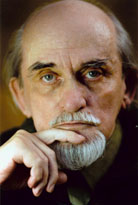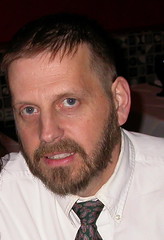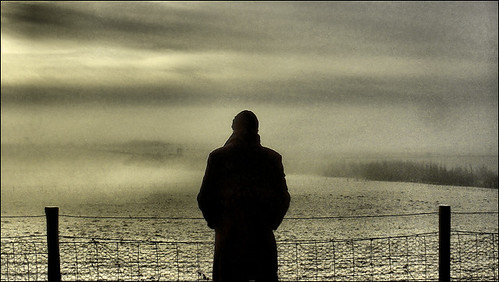Frequent readers know my devotion to Polish Poets like Adam Zagajewski, and Czeslaw Milosz.
This poem by Milosz is one of my favorites. For me, it expresses the deepest mystery of all
ENCOUNTER
We were riding through frozen fields in a wagon at dawn.
A red wing rose in the darkness.
And suddenly a hare ran across the road.
One of us pointed to it with his hand.
That was long ago. Today neither of them is alive,
Not the hare, nor the man who made the gesture.
O my love, where are they going, where are they going
The flash of hand, streak of movement, rustle of pebbles,
I ask not out of sorrow, but in wonder.
Vilnius, 1936
Jerzy Ficowski, another Polish poet, who chronicled the Holocaust and wrote movingly about the gypsies in his country, died this week.
When I visited a website to read more about him, I was startled by his face--especially the eyes.
It was almost as if an older version of my own Polish husband was staring back at me. Another mystery perhaps?


12 comments:
beautiful, stark poem, P. The author's face is so soulful, sad and wise and full of the world. Amazing likeness to your husband, indeed.
Thank you for your lovely comment on my fridge post.
Haunting question; haunting poem. I didn't know the poets you mention, but will look for them. Thank you. The eyes. The question in haunting visage. Very intriguing.
Some things we will never know...
Did you love Polish poetry before you married a Polish man or did he introduce you?
There is intensity in the eyes.
Not sorrow, but wonder. Will this move to the next stage of life ever be something we can understand here? Thanks for introducing me to this poet.
tdharma: Some pics for my fridge maybe. Thanks for stopping by!
rebekah: Interesting point about the eyes speaking the same message as the poem. Thank you.
paris parfait: always gratified to see you here.
sky: first the poetry, then the man. (Not in order of preference, of course.)
hobbes: that final line which you point out is so haunting. Thanks for visiting.
Where have they gone? Your post brought to mind Artur Miedzyrzecki. In the early 1970s my mother worked for Paul Engle's International Writers' Program at the University of Iowa, and Artur, his wife Julia Hartwig, and his daughter Daniela came to Iowa City. Later they lived in Des Moines. They were always gracious hosts when I visited them in Des Moines. Sadly, I learned that Artur died in 1996. But thank you for reminding me.
Steve: Thanks for helping me discover a new Polish poet. I found this from
Artur Miedryzrecki:
Obituary
He knew how to barter
But he couldn't sell himself
He knew how to have his say
But he listened with just one ear
He could go to great lengths
But he couldn't get back
His love was larger than life
But his life was very small
Now I'm in search of something by Julia Hartwig (also a Polish poet?) It seems your mother's years in Iowa were rich indeed.
Wonderful poem, Patry. Thanks for sharing it. And the eyes hold their own mystery, don't they! Also beautiful!
mb: When I posted the photos of the two Polish men, I wasn't thinking of their connection with the theme of mystery. But of course, it is there as you said, in the eyes.
The same question, posed wonderfully, that I am always asking.
marvelous poem ... a favorite. I so enjoy your writing.
colleen: No matter how many religious or natural explanations we hear, the question remains. I knew you would understand.
becca: Glad to see another Milosz fan here!
Post a Comment